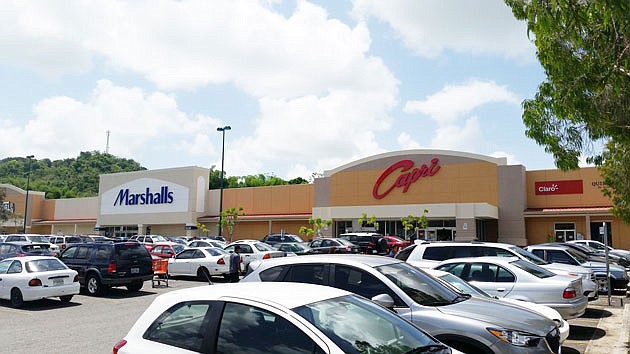Gulf Coast-area commercial real estate landlords with holdings in Puerto Rico are assessing the damage caused by Hurricane Maria and slowly reopening shopping centers and hotels.
Though much of the island remains decimated in the wake of the direct hit from the then-Category 5 hurricane, with roads impassable and food, water and fuel in short supply, some properties are functioning — especially in or around the capital of San Juan.
“From a damage perspective, our initial fears — based on some very grainy photos we received — were that it looked like we had some very severe damage,” says Ron Wheeler, CEO of St. Petersburg-based The Sembler Co., which owns a half-dozen properties on the island in conjunction with Forge Capital Partners, of Tampa.
“Fortunately, the situation is not as bad as we anticipated and early reports indicated,” he adds. “We have some trees down at our properties, not surprisingly, and some significant damage to roof areas, because some HVAC units were literally blown out of their brackets and impacted the roofs they were on.
“We lost a few windows and doors, as well, but everything appears to be structurally sound.”
Some Gulf Coast property owners may not have been as fortunate. Hotels in Puerto Rico managed and operated by Tampa-based H.I. Development Corp. could not be contacted by telephone late last week, and online reservation systems were either out of service or declined any reservation attempted for the balance of October.
H.I. Development officials did not return multiple telephone calls for comment.
At the company's Howard Johnson property in Ponce, a southern coastal town, an online reservation system says “this hotel is unavailable.”
The Holiday Inn Ponce and El Tropical Casino's reservation system indicates the hotel is “temporarily unavailable due to system maintenance.”
H.I. Development's Holiday Inn Mayaguez, on the eastern side of the island, may have fared somewhat better. Online comments on the hotel's website from guests note that the property did not lose power, at least initially, and that many patrons were transferred there from other hotels to shelter during the hurricane.
Wheeler acknowledges that even more than a week after the hurricane tore through on Sept. 20, the extent of damage was difficult to determine, in part because many roads remained blocked by down trees and power lines.
Gasoline shortages also prevented Sembler staff, a trio based in San Juan, from reaching more isolated parts of Puerto Rico during the first week of October.
Wheeler says Sembler has been methodically working to return to some semblance of normalcy in Puerto Rico.
“Job one for us was to make sure our people were OK, and we were able to determine that they were all safe,” he says.
From there, Sembler officials collected several duffel bags of food, water, batteries and other materials and flew them to the island on a private jet as part of a larger care effort.
By the first week of October, a few grocery stores in the company's centers had reopened using generator power, and Sembler's office had resumed work with electricity and internet service, and satellite phones allowed for telecommunication.
Officials on the island and in St. Petersburg also got to work filling out paperwork for insurance purposes.
“Our job now is to get all of our centers open and healthy again as quickly as possible,” Wheeler says.
And while the devastation seemed ubiquitous — President Trump declared Puerto Rico “destroyed” — some Gulf Coast investors were undaunted about being part of the rebuilding process in Puerto Rico.
“The fact that they sustained a major hurricane does not deter us from considering investing there,” says Punit Shah, CEO of Tampa-based Liberty Group, which had been exploring opportunities in Puerto Rico prior to Hurricane Maria's landfall. “We recognize the risks associated with investing in the island.”
But Wheeler notes that the American territory's recovery could be hampered by outside influences and by a prolonged economic recession there and crippling debt that totals more than $70 billion.
The island's aging electric infrastructure, for instance, which was already fragile and outdated before Maria blew through, will likely have to be completely rebuilt.
“Puerto Rico was facing a number of challenges even before the storm,” Wheeler says. “In the short term, the question is will some tenants even be able to reopen going forward, and I expect will see that play out over the next six to 12 months.
“Longer term, there's a question of population. There's been a steady net migration off the island in recent years, and I wonder if this event will exacerbate that.”
Still, he says Sembler is pleased with the centers it owns on Puerto Rico, which were 97% occupied prior to the hurricane.
“The level of federal assistance will be a big determining factor, I think, in whether Puerto Rico is able to weather this storm and move forward or slip further behind. The federal government will have tremendous influence on the future there.”






